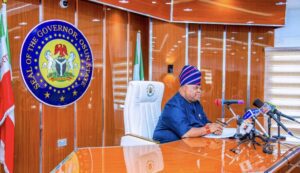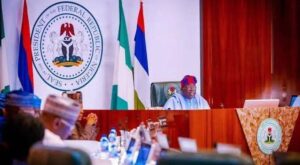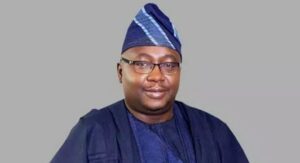


Testimonials (For WS, Odukomaiya, Osoba, Ogunsola and Dare)
By Gbenga Omotoso
Let us forget about them all – for a while.
The thoughtless impeachment of former Adamawa Governor Murtala Nyako by a band of lawbreakers and erratic errand boys posing as champions of decency; the buffoonery of replicating the #BringBackOurGirls protest; the buccaneering that is the plot to impeach Nasarawa Governor Tanko Al-Makura, his Rivers, Edo and Borno counterparts Rotimi Chibuike Amaechi, Adams Oshiomhole and Kashim Shettima. Let’s close our eyes to them all.It has taken some prompting – tongue lashing, some cheeky fellows insist – from a 17-year-old girl to arouse President Goodluck Jonathan’s sense of empathy. He has eventually met the parents of the abducted girls – not in troubled Chibok , but in the cosy banquet hall at the Villa.
As I said, let’s push them all aside today.
It is a season of birthdays. Prof. Wole Soyinka is 80. Aremo Segun Osoba is 75. Prince Henry Odukomaiya is 80. Chief Ajibola Ogunsola is 70. Prof. Olatunji Dare is 70. Editorial Notebook is joining the celebration of these giants, whose stories have been told by better tested hands. But, here, dear reader, are just some testimonials.
Long before I met him physically, I had encountered Prof. Wole Soyinka. I read his books at school. His photographs would land on my table as a young sub-editor at Rutam House, and I would look at them and hail his bravery and strength of character.
Then, an opportunity came in 2010 for me to see the genius at close range. Kunle Ajibade of The News and I were with him at the African Development Bank’s (AfDB’s) Eminent Persons Lecture Series in Tunis.
The Nobel laureate’s lecture, “Caution…Intellectuals at work,” was vintage Soyinka. Those who felt Africa’s intellectuals were not doing enough about the continent’s troubles got an answer. Amid applause, Soyinka enumerated the roles of the intellectual and lambasted dictators, saying there is no benevolent dictatorship. Needless to say, some months after, the Arab Spring hit Tunisia. Zayn al-Abidin Ben Ali, “the benevolent dictator”, who led from November 1989, fled. Prescience. Talk of the writer as a prophet.
After the lecture, it was time for lunch and some questions for the distinguished lecturer. Soyinka asked Femi Fatoyinbo, an official of the AfDB who facilitated his acceptance to deliver the lecture free of charge – the professor had never met Femi before then – to fetch some wine. Femi went round the gigantic hotel for some 30 minutes without bringing a bottle. Soyinka was getting impatient. At last, Femi returned with a piece of bad news. The hotel does not serve alcohol. “Let me go somewhere else. I’ll return before lunch,” Soyinka said. Before he could step out, AfDB President Donald Kabaruka and all the other big officials had arrived for lunch. They shook hands with Soyinka, congratulating him for a great job.
At lunch, Prof. refused to eat. He would not answer questions. He needed some wine, and he told his hosts. The managers of the hotel thought it was a problem they could easily handle. One rushed down to the bar and showed up with a glass full of something that looked like red wine. Soyinka could not be tricked. “My friend, take it back; get me the real thing,” he fired back at the official whose smiling face had melted into some scowl of confusion. In a few minutes, the man walked briskly down the hall, holding a glass of wine, real wine, which he covered with a snow-white handkerchief. Soyinka tasted the stuff, nodded in satisfaction, and smiled in triumph.He had forced the hotel to change its policy. We were to learn later that the hotel was built with a grant from Saudi Arabia after it was agreed that alcohol would not be served there for 25 years.Lunch over, it was time for the eminent lecturer to sign the guests’ book. Television cameras were rolling, and photographers were struggling for vantage positions. Soyinka bent down and, in a few seconds, he delivered a potentially combustible verdict in Yoruba: “Iru ibi ti o daa bayi, otin to daa loye ka maa mu nibe” (we should be drinking nice wines in a good hotel such as this).Amid laughter, later at his hotel’s reception, after learning that the book he signed actually belonged to the bank, Soyinka asked Femi Fatoyinbo, my friend who works at AfDB, to fetch it for him to write another comment.The lesson: Soyinka’s sense of freedom is all-embracing. It includes even the right to drink a good wine. And Expresso coffee– his favourite, I suspect. anywhere.A young restaurateur was so excited at Soyinka’s visit to his place. He said his late father would have been glad to see the lifetime experience of the Nobel laureate’s presence at the restaurant. He urged Soyinka to accept as a mark of his appreciation, the gift of a 25-year-old gin brewed specially by his family. Prof. was moved. He thanked the young man and accepted to be photographed with him beside his late father’s portrait.
I recall vividly that night when the late Mr. Mac Adetoyi Alabi, our Night Editor at “The Guardian,” had a visitor who stayed unusually long, slowing down the first edition. Baba, as we all called him on account of his old age and long experience, even saw off this visitor. That was unusual. Asked a few minutes after he had settled down again who that visitor was, Baba looked up, his face expressing some incredulity. “You don’t know him?” He shook his head slowly and raised his voice. “That’s the last editor of “Daily Times,” Henry Odukomaiya.”I left Baba, smiling and wondering… “the last editor of Daily Times.” Prince Odukomaiya left “Daily Times” to midwife the birth of National Concord, which was financed by the late billionaire and politician, Chief M.K.O. Abiola.
He was also the man who set up the Champion, mentoring many journalists. Prince Odukomaiya deserves all the encomiums being poured on him. He has done well.”A friend of mine who was an editor at “The Punch” told me of how relieved he was when he stopped getting short messages from Chief Ogunsola.
He felt the chief was being fastidious, pointing out errors that many a reader would overlook and a journalist would explain away as the “printer’s devil”.I disagreed with my friend. If Ogunsola had not been thorough, perhaps “The Punch” would not have been as prosperous as it is today. The paper was at a low ebb when he took over as chairman.
Now, it is celebrated as a successful business.My former boss, Mr. Lade “Ladbone” Bonuola, once said he needed to have a word with Ogunsola. “I will like to preach God to him,” he said. I don’t know if Mr. Bonuola eventually did. In case he didn’t, somebody should, even as the Chief reserves the right to his opinion on any issue, including the existence of The Almighty.Aremo Olusegun Osoba came into journalism by chance. Many do not know that he was a sub-editor, one of those guys who mould the character of a newspaper but who are never seen or heard, unlike reporters who are the glamour boys of the trade.
For Osoba, reporting is the soul of newspapering. He excelled in it and became a reference point for editors telling their reporters how to do it. His newspaper days have been well documented by Mike Awoyinfa and Dimgba Igwe in his biography.If Osoba is the Aremo (the chosen one, the favourite) of reporting in Nigerian journalism, Prof. Olatunji Dare is the Jose Mourinho (the Special One), the master satirist. To him, humour comes naturally. But many do not know that Prof. Dare was a physics teacher.I have gained immensely from his amazing talent. In fact, to him, I owe the name of this column. Dare finds it so easy to write on any subject, making something out of nothing and spicing it all up with a huge dose of humour, forcing you to laugh in a country where there is little to provoke even a smile.Like the late Baba Alabi, Dare detests errors. You dare not second guess him. He will reprimand you severely. But, ironically, he believes a newspaper is a miracle. “Every time a newspaper hits the newsstand, I know a miracle has happened,” says the professor, “because in the course of production, a thousand and one things could have gone wrong.” Many have written about Dare’s resolute stand on the June 12 debacle, how he refused to join The Guardian team that went to burnish the late Gen. Sani Abacha’s ego for him to reopen the newspaper, which he shut down in a senseless show of power, how their week was incomplete without reading Matters Arising and how he quit Rutam House.None has, however, recalled that Dare actually wore a lush beard for months – in protest against all that he went through. It is a tribute to his forgiving spirit that Mrs. Maiden Ibru, the publisher of The Guardian, was at MUSON Centre last Thursday when Dare was being honoured.Mrs. Ibru spoke of how great and influential the newspaper was, ascribing it all to the presence of many, including Dare. That was a remarkable tribute.How I wish we could have more of our greats to celebrate. But will the situation in Nigeria–another bomb went off yesterday, in Kaduna, killing scores–allow us to?
Omotoso is Commissioner for Information and Strategy, Lagos State. This article was first published in July 2014. It is being rerun to celebrate the eminent Nigerians who are its focus.



